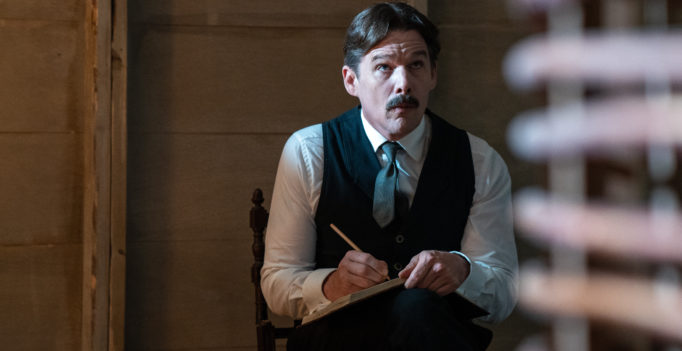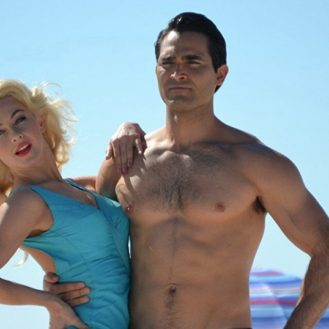Tesla, written and directed by Michael Almereyda (Hamlet [2000], Majorie Prime), explores the famous Serbian inventor with an ostensible inventiveness in both narrative and form. While the experimentation is welcome and even appropriate, its application is uneven and questionable, and leads to an uncertain overall thesis.
Taking the same mutational form of an experimental, fictional hybrid that explores parts of Tesla’s (Ethan Hawke) life, such as his fractured professional relationship with Thomas Edison (Kyle MacLachlan), given it’s incoherent structure, the film becomes increasingly hard to follow, with its old school televisual-style aesthetic and unusual, understated performances.
Unlike the typical cultural representations of Tesla as an idiosyncratic genius, Ethan Hawke’s portrayal is refreshingly subdued. The rest of the cast is littered with familiar, though more independently-oriented character actors, including Jim Gaffigan and James Urbaniak, creating an unusual chemistry between characters that resists the typical actorial conventions of the biopic.
Far too often, Tesla’s experimental narrative and aesthetic structure all-too-often drowns the film in what feels more appropriately applied to a 90s televised re-enactment documentary. While this approach is evidently inspired, its purpose remains unclear and leads towards convoluted and occasionally mundane results. Almereyda’s didactic, terminologically heavy screenplay doesn’t assist in making the film any more enthralling.
Tesla struggles to find a coherent way to explore the subject, opting for confusing imagery and aesthetic techniques that muddle rather than clarify the points it seeks to make about Nikola Tesla.
**********
Do You Tweet? Follow These Tweeple:
Mark Barber: @WorstCinephile





Be the first to comment